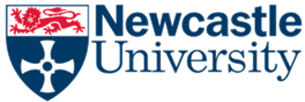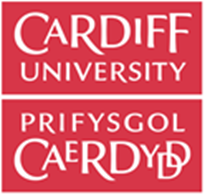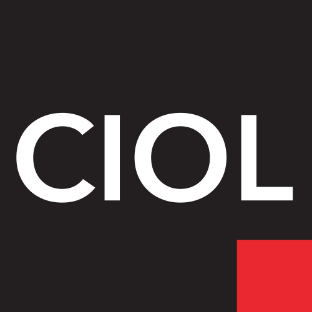Call for Papers
Call for Papers - Knowledge Exchange Conference:
“Ethics and Self-Care in Translation and Other Professions: What can we learn from each other?”
12-14 September 2024, Newcastle University (United Kingdom)
Conference organisers: Dr JC Penet (Newcastle University), Dr Joseph Lambert (Cardiff University) and Dr Callum Walker (University of Leeds)
Event website: https://conferences.ncl.ac.uk/ethicsandselfcareintranslation/
While ethical issues in translation and interpreting have now long occupied scholars and professionals alike, recent global events – including health and financial crises and technological developments – have arguably made these questions more prominent than ever before. Indeed, the last few years have seen a welcome increase in the number of publications addressing ethics in Translation and Interpreting Studies (e.g. Koskinen and Pokorn 2021, Phelan et al. 2020, Moniz and Parra Escartín 2023, Lambert 2023).
An emerging focus in these wide-ranging publications has been the concept of self-care (see Costa et al., 2020), with authors looking to consider the mental, physical, and financial wellbeing of the people at the heart of the industry. Working in a challenging and often stressful professional context that can cause moral injury, vicarious trauma, and burnout (Hubscher-Davidson 2021: 425), self-care is required as a balancing tool and could even be considered an ethical responsibility (Costa et al. 2020: 36), while finances and working conditions are among the key stressors for professionals (Inbox Translation 2023, Lambert and Walker 2022).
While almost ubiquitous, translation and interpreting codes of ethics do not usually reflect the growing importance of these concerns (Lambert, 2023). Similarly, ethical and/or wellbeing training is rarely offered beyond – and is often underdeveloped even within – the translation classroom (Penet and Fernandez-Parra, 2023). As such, there remains vast potential for professional development among language service providers, associations, and higher education institutions. In a 2023 report on the provision of mental health and wellbeing training offered in the context of crisis communication, findings showed that there is growing attention towards the need to support mental wellbeing and that, among the European associations surveyed, “some support has been offered over the years and there are plans to train members who may be working in traumatic conditions or working in crisis settings” (Federici, O’Brien, and O’Shea 2023: 4). However, in a context where the health risks posed are abundantly clear, the authors conclude that more training is required and, within the wider context that we aim to explore, this need is perhaps even more acute.
This event is designed to create a forum in which key industry stakeholders can discuss and develop ideas surrounding such a crucial aspect underpinning contemporary practice and examine the complex relationship between ethics and self-care. Can, for instance, “good” ethical practices be conceived as dependent upon good self-care, or does wellbeing depend on “good" ethical practices?
Building upon Drugan and Tipton’s (2017) influential siren call for greater engagement with caring professions such as medicine, social work, or teaching, we look to initiate dialogue with representatives beyond the translation world in a bid to draw out potential developments. In the context of nursing, for instance, students and practitioners receive considerable training in ethics, and there is a large emerging body of ideas looking at the potential benefits of self-care training in particular (Bernburg, Groneberg, and Mache 2020). Further, there is also a need to explore ways to expand access to self-care for translators in regions beyond the Global North. Indeed, concepts such as “trauma", "resilience" and "self-care" might arguably be seen as predominantly Western paradigms that may not have the same resonance in other cultural contexts.
In the same spirit, we will also look to move beyond the specific contexts of individual caring professions to consider the concept of "ethical maturity” that we borrow from coaching. Defined by Carroll and Shaw as “the reflective, rational, emotional and intuitive capacity to decide actions are right and wrong, or good and better; the resilience and courage to implement those decisions; the willingness to be accountable for ethical decisions made (publicly or privately); and the ability to learn from and live with the experience” (2013: 30), this concept further illustrates the potential potency of ideas from other domains. It should allow us to incorporate important discussions of accountability and resilience in the profession, while exploring the role of emotions and wellbeing, alongside reason and reflection, in developing ethical maturity. There is a perceived urgency to do so. In an industry where change is fast-paced, where professional translators are constantly faced with “ethical moments of choice” (Van Nieuwerburgh 2020: 79) – whether big or small – could a lack of ethical maturity lead to some professional translators leaving the industry?
Questions we are keen to consider include (but are not limited to) the following:
• (How) can or should we better consider self-care and wellbeing in the contexts of translation and interpreting?
• As translators, what can other industries teach us about self-care and wellbeing?
• How can we effectively incorporate these concepts into professional and training contexts, and in a wide range of regional settings?
• How can we best harness technological changes to increase wellbeing and working conditions?
• Could the concept of “disaster ethics” help professional translators build greater ethical maturity? If so, what would this look like for in-house translators and freelance translators?
• In what ways are concepts such as resilience, trauma and self-care applied to or interpreted/understood by practitioners or researchers of the Global South?
• What are the commonalities and differences between regulated v. unregulated professions when it comes to dealing with ethics/self-care? What does it mean concretely for the individuals? What can unregulated professions learn from regulated professions, and vice versa?
• What are the profession-specific models of ethical decision-making already in place? (e.g. Duffy and Passmore’s 2010 APPEAR model for coaching). Can such models be adopted from one profession to the next?
• How can each profession develop its own pragmatic model that helps individuals with ethical maturity? How could doing so benefit individuals’ self-care and the profession as a whole?
To submit an abstract:
To submit an abstract for this event, please complete the following form: https://forms.office.com/e/krTBu0v96u
You will be asked to provide a max. 400-word abstract as well as a 150-word speaker bio.
The deadline for abstract submission is Friday, 23rd February 2024 at 23.00.
----
References:
Bernburg M., D. Groneberg, and S. Mache (2020). Professional training in mental health self-care for nurses starting work in hospital departments. Work. 2020;67(3):583-590. doi: 10.3233/WOR-203311. PMID: 33185622.
Carroll, M., and E. Shaw. (2013). Ethical maturity in the helping professions : making difficult life and work decisions. London: Jessica Kingsley Publishers.
Costa, B, R. Lázaro Gutiérrez and T. Rausch. (2020). “Self-care as an ethical responsibility: A pilot study on support provision for interpreters in human crises.” Translation and Interpreting Studies 15, no. 1: 36 – 56. https://doi.org/10.1075/tis.20004.cos
Drugan, J., and R. Tipton. (2017), May. “Translation, ethics and social responsibility.” The Translator 23, no. 2: 119 – 125. https://doi.org/10.1080/13556509.2017.1327008








